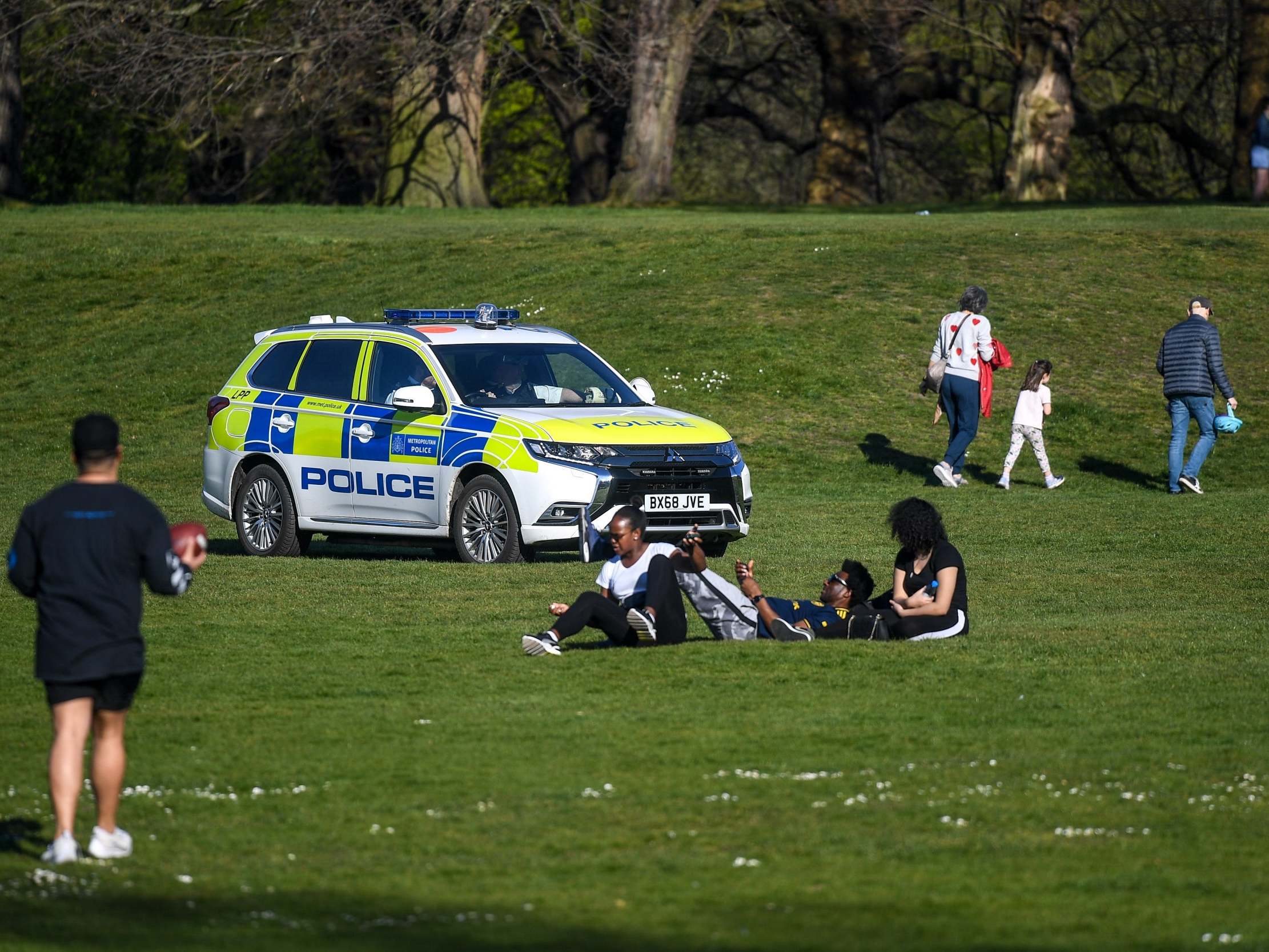The coronavirus lockdown has been described as “the most significant and blanket interference with individual liberty in modern times” in a parliamentary report.
The document named six articles of the European Convention on Human Rights (ECHR) that can be violated by the unprecedented restrictions placed on the British public.
They include the freedoms of assembly and association, the right to respect for privacy and family life, freedom of religion and the right to liberty.
Parliament’s Joint Committee on Human Rights (JCHR) said any interference “can be justified if they are proportionate means of protecting public health”.
But chair Harriet Harman warned: “The devil is in the detail, and it is conceivable that certain aspects of the restrictions may, for example, disproportionately and unjustifiably impact on particular groups such as people with specific social needs, mental health issues, autism or disabilities.”
The briefing said that police attempts to prevent breaches of the lockdown, which have seen officers enforce the government guidance rather than the law in places, could breach article 7 of the ECHR.
“No one shall be held guilty of any criminal offence on account of any act or omission which did not constitute a criminal offence under national or international law at the time when it was committed,” it reads.
Almost all coronavirus-related offences are summary, meaning they are not heard before a jury, and the JCHR said the right to a fair trial (article 6) may also be affected.
Last week, British Transport Police charged a woman with a crime she did not commit under the new Coronavirus Act, resulting in a court punishing her with a £660 fine.
The conviction was quashed following negative media reports, but there are fears that other miscarriages of justice will go unnoticed amid continued confusion over the scope of new coronavirus laws.
More than half of UK courts have been shut and journalists are struggling to gain remote access to hearings, which are rarely being announced in advance.
The National Police Chiefs' Council has instructed officers to use fines and arrests as a last resort, but many forces say they are regularly questioning members of the public making car journeys or spending time outside.
The JCHR said the practice could make “members of the public feel intimidated into not leaving their homes” potentially violating the right to privacy and freedom of association.
The new Health Protection Regulations make it an offence to leave home “without reasonable excuse”, which can include exercising, working, helping vulnerable people and buying food.
Article 8 of the ECHR states that “everyone has the right to respect for his private and family life”, although it gives public safety and the protection of health as a legitimate reason for state interference.
Lockdown conditions banning public gatherings of two people or more, unless they are from the same household.
The prohibition violates article 11 of the ECHR, which protects the freedoms of assembly and association with others but also has a health protection exemption.
The JCHR said article 1, protocol 1, may also be broken as it protects the “peaceful enjoyment of possessions” including property.
The ban on communal worship also interferes with ECHR article 9, on the freedom of religion, the document said.
It noted that some legal commentators have argued that the social limitations of the lockdown “could be so significant in some cases” that it violates article 5 of the ECHR.
It states that “no one shall be deprived of his liberty save” in specified circumstances, which include imprisonment for crime and “the prevention of the spreading of infectious diseases”.
The JCHR said article 5 could also be broken by coronavirus-related offences created by the new law.
Ms Harman said the rights were “qualified”, adding: “They may be lawfully interfered with in accordance with the law, on the grounds of public health, where necessary and proportionate [but] the proportionality of these restrictions must be judged in accordance with what is necessary for public health purposes and whether any less intrusive measures could be used instead.”
Join our commenting forum
Join thought-provoking conversations, follow other Independent readers and see their replies
Comments
Bookmark popover
Removed from bookmarks